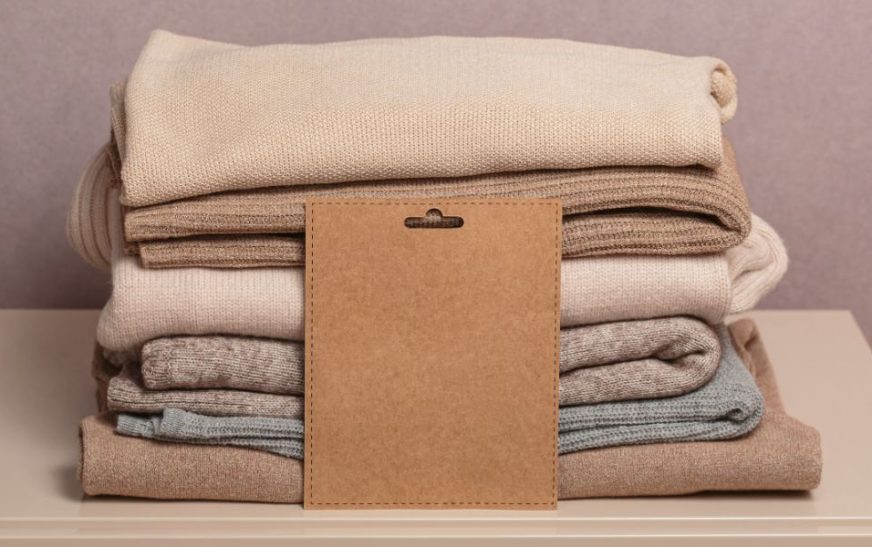In the fast-paced world of fashion and technology, there’s a quiet but powerful revolution happening at the intersection of these two industries. It’s a revolution driven by the principles of ethics, sustainability, and the recognition that our choices as consumers have a profound impact on the world we live in. Welcome to the realm of “Tech and Textiles: The Ethical Fashion Revolution.”
The Essence of Ethical Fashion
Ethical fashion, also known as sustainable or eco-fashion, is all about clothing that is created with respect for both people and the planet. It means considering every step in the production process, from the sourcing of materials to the conditions of the workers who craft the garments. In this article, we will explore why ethical fashion matters, the rise of ethical brands, and why this movement is so important.
The Urgency of Ethical Fashion
In a world marked by rapid consumption and disposal, ethical fashion challenges the status quo. We are faced with the stark reality of overproduction, sweatshops, and environmental degradation. Ethical fashion presents a refreshing alternative, advocating for responsible practices and sustainable materials.
The Meaning of Ethical Brands
Ethical brands are the pioneers of this movement. They’re more than just labels; they’re beacons of hope in an industry often criticized for its environmental and ethical shortcomings. Ethical brands prioritize transparency, fair wages, and eco-friendly materials, putting principles before profit margins.
The Human Factor
One of the key facets of ethical fashion is the humane treatment of workers. No longer should fashion be synonymous with exploitation. Ethical brands ensure fair wages, safe working conditions, and the right to unionize for the individuals who bring our clothing to life.
Sustainable Sourcing
The materials used in clothing play a pivotal role in the ethical fashion revolution. From organic cotton to recycled polyester, sustainable sourcing reduces the environmental impact of the fashion industry. This not only conserves resources but also reduces the carbon footprint.
Environmental Impact
The fashion industry is infamous for its significant environmental footprint. Ethical fashion, on the other hand, emphasizes sustainability at every turn. It seeks to minimize water usage, reduce chemical pollution, and encourage recycling and upcycling, thus minimizing fashion’s negative impact on our planet.
Quality over Quantity
In a world where fast fashion dominates, ethical brands embrace the philosophy of “buy less, choose well.” By producing high-quality, long-lasting garments, they encourage consumers to invest in pieces that stand the test of time.
Transparency in the Supply Chain
The transparency of supply chains is a cornerstone of ethical fashion. Consumers have the right to know where and how their clothing is made. Ethical brands are more than willing to provide this information, fostering trust and accountability.
Why Ethical Fashion Matters
Ethical fashion isn’t just a trend; it’s a necessity. As we face the consequences of climate change, pollution, and social injustices, it is imperative to shift towards ethical fashion. It’s about making choices that align with our values and contribute to a better world.
The Power of Consumer Choices
As consumers, we hold immense power to reshape the fashion industry. By choosing ethical brands and supporting sustainable practices, we cast our votes for a more equitable and sustainable world.
Final Words
In the realm of “Tech and Textiles: The Ethical Fashion Revolution,” we find a fusion of innovation, sustainability, and conscience. This movement not only redefines fashion but also highlights the significant impact our choices have on the planet and the people who create our garments. Ethical fashion is no longer just a choice; it’s a responsibility. So, why not embrace this revolution and become a conscious consumer, contributing to a brighter, more sustainable future?
Commonly Asked Questions
1. What Is the Significance of Ethical Fashion?
Ethical fashion is significant because it promotes sustainability, fair labor practices, and transparency in the fashion industry. It challenges the negative impact of fast fashion and encourages consumers to make conscious choices.
2. How Can I Support Ethical Fashion?
Supporting ethical fashion involves choosing brands that prioritize sustainability and ethical practices. Look for certifications like Fair Trade and organic materials, and research brands’ supply chain transparency.
3. Why Are Ethical Brands More Expensive?
Ethical brands are often more expensive due to the use of high-quality, eco-friendly materials, fair wages for workers, and sustainable production processes. While the initial cost may be higher, the long-term benefits for the environment and society are priceless.
4. What Are Some Well-Known Ethical Fashion Brands?
There are several well-known ethical fashion brands, including Patagonia, Eileen Fisher, and Stella McCartney. These brands are celebrated for their commitment to sustainability and ethical practices.
5. How Does Ethical Fashion Benefit the Environment?
Ethical fashion benefits the environment by reducing waste, minimizing water and energy consumption, and promoting recycling. It also encourages sustainable sourcing of materials, ultimately decreasing the fashion industry’s environmental impact.


























